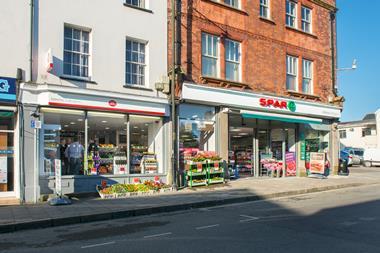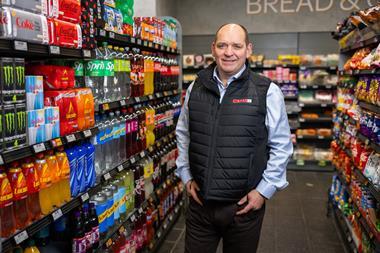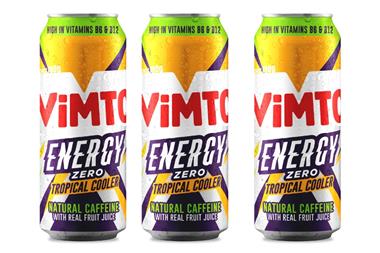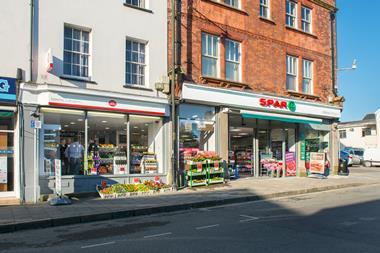>>Spar’s Use of retail flair and flexibility is key to achieving its goal
>>THE ISSUES THAT MATTER, FROM THE PEOPLE INVOLVED
Spar’s annual conference in Cape Town last week was a fascinating affair. This was my third conference in seven years, so I am fast turning into something of a veteran of these events. And while much of what I heard from the platform sounded very familiar - in particular, the calls for more discipline and better collaboration - I really did feel that this time Spar means business.
In many ways Spar, like its rivals in the independent sector, has no option but to evolve - and fast. That means thinking what would previously have been unthinkable, and persuading its members to commit to initiatives rather than paying lipservice to them.
I remember when I was at the Toronto event in 1999, The Grocer had just revealed that Tesco was planning to open standalone convenience stores and Sainsbury had started its trials with Local. The message from the platform was uncompromising: life was going to get tougher for independents. But none of us could have imagined how much tougher the market would become in five short years. If someone had told those gathered in Toronto that Tesco planned to open 1,000 c-stores I think they would have been laughed off the stage.
So in this new competitive landscape, can Spar pull it off? Can the group achieve its ambition of becoming the biggest and best convenience retailer in the country?
To outsiders, the Spar family really does seem to be far too complicated: six wholesalers, 1,600 owners and more than 2,700 stores, with a seemingly arcane federalist structure rather than a strict franchisee-based business model that encourages absolute discipline.
But as chairman Peter Blakemore explained at this year’s conference, the entrepreneurial spirit that beats at the heart of Spar is actually its biggest asset. In today’s rapidly changing c-store market, retailers like Spar must find new ways of differentiating themselves from what Blakemore dubs the “corporate monoliths”.
To succeed Spar will have to tap into the retail flair that exists throughout its business, while ensuring that the flexibility inherent in its structure is not allowed to turn into anarchy. But if Spar can get that bit right then there is no reason why it cannot succeed. So long as its members really are prepared to embrace change - even if that means thinking and doing what would have been unthinkable just five years ago.
thinking the unthinkable
>>THE ISSUES THAT MATTER, FROM THE PEOPLE INVOLVED
Spar’s annual conference in Cape Town last week was a fascinating affair. This was my third conference in seven years, so I am fast turning into something of a veteran of these events. And while much of what I heard from the platform sounded very familiar - in particular, the calls for more discipline and better collaboration - I really did feel that this time Spar means business.
In many ways Spar, like its rivals in the independent sector, has no option but to evolve - and fast. That means thinking what would previously have been unthinkable, and persuading its members to commit to initiatives rather than paying lipservice to them.
I remember when I was at the Toronto event in 1999, The Grocer had just revealed that Tesco was planning to open standalone convenience stores and Sainsbury had started its trials with Local. The message from the platform was uncompromising: life was going to get tougher for independents. But none of us could have imagined how much tougher the market would become in five short years. If someone had told those gathered in Toronto that Tesco planned to open 1,000 c-stores I think they would have been laughed off the stage.
So in this new competitive landscape, can Spar pull it off? Can the group achieve its ambition of becoming the biggest and best convenience retailer in the country?
To outsiders, the Spar family really does seem to be far too complicated: six wholesalers, 1,600 owners and more than 2,700 stores, with a seemingly arcane federalist structure rather than a strict franchisee-based business model that encourages absolute discipline.
But as chairman Peter Blakemore explained at this year’s conference, the entrepreneurial spirit that beats at the heart of Spar is actually its biggest asset. In today’s rapidly changing c-store market, retailers like Spar must find new ways of differentiating themselves from what Blakemore dubs the “corporate monoliths”.
To succeed Spar will have to tap into the retail flair that exists throughout its business, while ensuring that the flexibility inherent in its structure is not allowed to turn into anarchy. But if Spar can get that bit right then there is no reason why it cannot succeed. So long as its members really are prepared to embrace change - even if that means thinking and doing what would have been unthinkable just five years ago.
thinking the unthinkable

















No comments yet